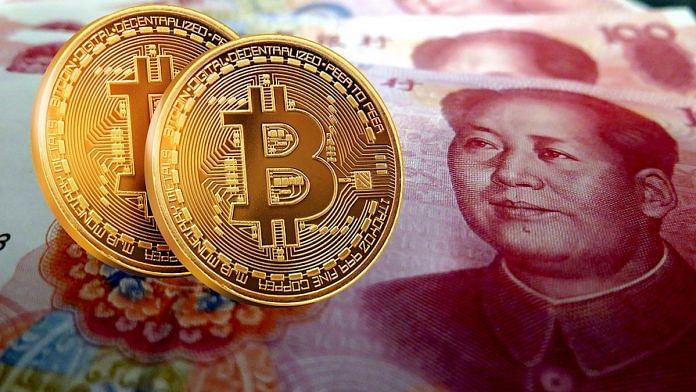
Thank you dear subscribers, we are overwhelmed with your response.
Your Turn is a unique section from ThePrint featuring points of view from its subscribers. If you are a subscriber, have a point of view, please send it to us. If not, do subscribe here: https://theprint.in/subscribe/
2023 could well be the year that will determine China’s place in global finance as well as be determined by economic events in China. There are three factors that could decide whether the Chinese leadership’s desire to achieve global pre-eminence in the coming decades could have any chance of coming true.
The first is the e-CNY, the digital currency issued by the Peoples’ Bank of China. President Xi Jinping, and other senior leaders have always viewed the US hegemony in the global financial system as a key weakness for China. Their fears would have got accentuated by the US actions against Russia in the wake of the war with Ukraine. The US acted quickly in trying to choke the Russian economy by freezing its assets (an action that it has taken earlier against other countries also). However, it was its removal of several Russian banks from the Swift system of interbank transactions that has set the cat among the pigeons. Similar sanctions could easily be imposed on Chinese banks if China dared at some point to invade Taiwan. The digital currency could become China’s way of safeguarding itself from sanctions. However, this would be possible only if there is widespread use of the e-CNY, which in turn would require China to allow the e-CNY to be used abroad. Central bank authorities have emphasized that this is not being contemplated, at least for the time being.
The second factor is the opening up of China’s economy, especially from the 2nd quarter of 2023, once the wave of Covid infections start coming down. As in other countries where Covid restrictions were removed, there has been a massive increase in deaths (estimated by the Economist at over 1.5 million) and a huge adverse impact on economic activity. If the experience of other countries (including India) is any indication, this can be expected to be followed by an equally sharp revival, very likely a V-shaped movement. In turn, this could affect demand for commodities (especially oil and metals like copper and steel used in infrastructure) as well as a spike in industries as diverse as travel & tourism and real estate development. The Chinese government has recently announced that the economy is expected to expand by 5% in 2023. However, housing could become the biggest stumbling block to China’s economic revival, since it has been suffering in recent quarters from the excesses of the past. Over 20% of the country’s growth has been linked to property development as it has a huge impact on both employment and the demand for goods and services, both directly and indirectly. The volume of floor space sold across the country fell by 24% in 2022, the biggest slump since data became available in 1992. It will be interesting to see whether 2023 marks a year of further weakness or a revival in this key sector. The government has recently come out with a 21-point reforms program, but it is vague on details.
The 3rd factor is business confidence, which is critical for economic development as it determines the scale of domestic investment. Business confidence has recently been rattled by the disappearance of Bao Fan, a leading investment banker especially in the tech industry who has been involved in several mega deals. It is not uncommon for billionaires who have a fall-out with the Chinese authorities to disappear, and then reappear after some time, suitably disciplined after undergoing a series of corruption, tax or other misconduct investigations. It may be recalled that in late 2020, just ahead of a major public listing, Alibaba founder Jack Ma had disappeared from public view for three months, after making comments critical of market regulators. Since then, at least half-a-dozen billionaires have met the same fate. No doubt, resentment would be simmering within the business community. This year could well decide whether Bao Fan’s arrest will be the tipping point that will force investors to become cautious.
Meanwhile, the war in Ukraine and China’s overt support to Russia is creating problems for its exports, especially to the western world. Will this factor upend all the economic ones? In 2022, Europe has been forced to acknowledge that weaning itself away from Russia for its energy needs is easier said than done. In 2023, will the Western world have to accept that it is too intertwined and dependent on China for manufactured goods to be able to find alternative suppliers who can deliver the same price and quality? As they say, only time will tell.
These pieces are being published as they have been received – they have not been edited/fact-checked by ThePrint.
Also read: SubscriberWrites: Multi-polarity might be the future, but there are hurdles in place

COMMENTS